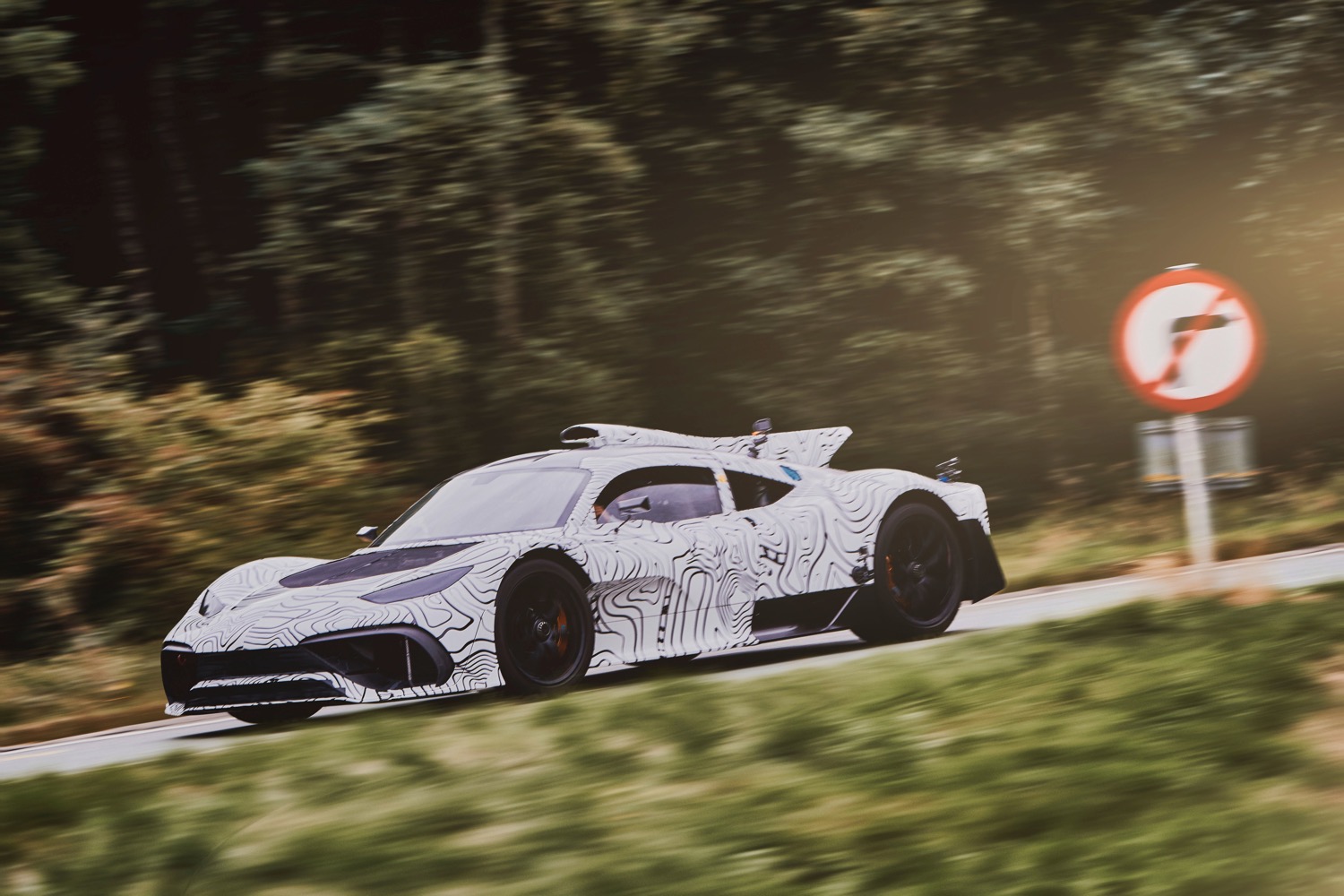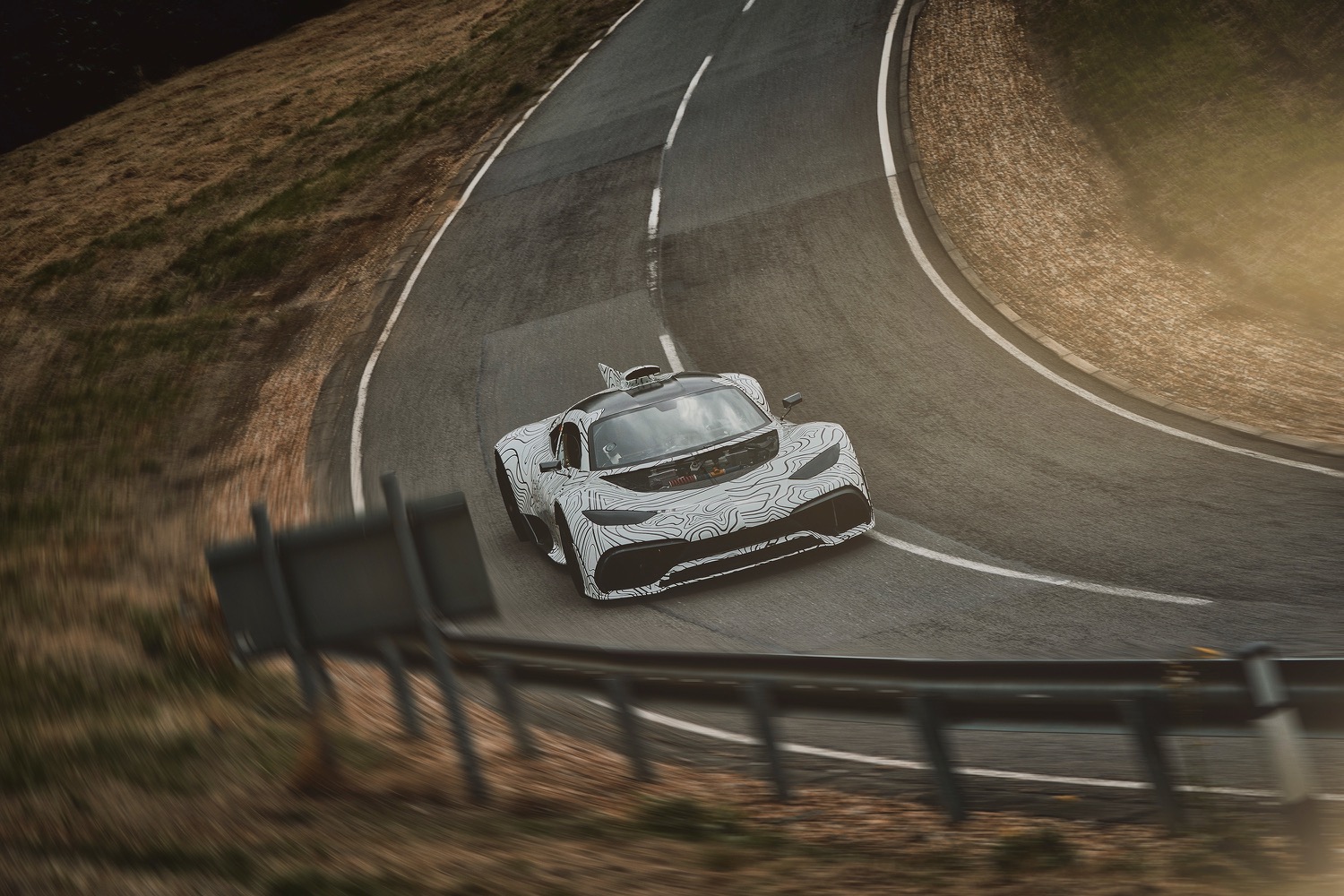The Mercedes-AMG Project One is the most extreme production car ever to come out of Mercedes-Benz’s AMG skunkworks. A hybrid supercar incorporating Formula One racing technology, the Project One is now undergoing testing on public roads as part of the final stages of its development. Get your camera out.
Mercedes built the Project One to pat itself on the back for recent racing success, incorporating genuine F1 DNA in the form of a 1.6-liter turbocharged V6 taken straight from race cars, backed by a hybrid system. Unlike F1 cars, the Project One is all-wheel drive, with two electric motors powering the front wheels and the V6 working with a third electric motor to power the rear wheels. A fourth motor spools up the turbocharger for increased responsiveness. Some tech from the Project One is also expected to trickle down to more mainstream AMG performance cars.
The Project One was unveiled at the 2017 Frankfurt Motor Show, and since then engineers have been busy turning it from eye candy to production car. Mercedes said the car has already undergone hundreds of hours of testing behind closed doors at its High-Performance Powertrains division in Brixworth, England, where the powertrains for F1 race cars are developed.
But the biggest challenge for the Project One engineering team is making highly complex racing hardware work on a road car. Racing engines aren’t designed to endure tens of thousands of miles, stop-and-go traffic, or the extremes of climate regular production engines must survive. Testing of camouflaged prototypes on public roads will ensure the fragile powertrains can work in the real world.
Based on photos released by Mercedes, it appears the Project One hasn’t changed much from its initial appearance in Frankfurt. We wish Mercedes had released some audio as well. We’re eager to hear what a bona fide F1 engine — even one of today’s quieter V6 turbos — sounds like in a road car. Anyone who happens to be within earshot when one of these prototypes roars by will be very lucky indeed.
Mercedes hasn’t released full specifications, but the automaker is promising at least 1,000 horsepower. Sophisticated aerodynamic aids will help stick the Project One to the track, generating up to 1,500 pounds of downforce. But the Project One will still be a true hybrid, according to Mercedes, complete with an all-electric mode.
Only 275 Project Ones will be made, priced at an estimated $2.7 million each.







